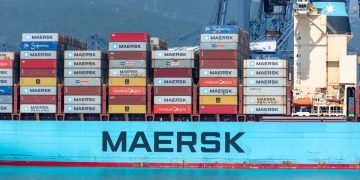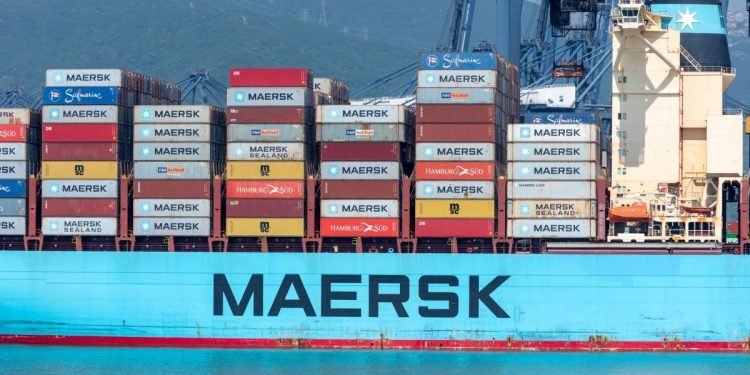By Maria Kalamatas | August 1, 2025
Mumbai — Maersk has confirmed a bold $65 million investment to develop multi-modal logistics hubs in India’s interior, targeting fast-growing manufacturing clusters far from the country’s coastal gateways.
The project, announced Thursday, includes three new inland container depots (ICDs) to be built in Nagpur, Kanpur, and Vadodara, each equipped with rail connectivity, customs clearance facilities, bonded warehousing, and digital tracking tools.
“India’s future as a global manufacturing hub hinges on solving inland logistics,” said Ravi Nair, Director of Supply Chain Solutions at Maersk India. “Too many delays happen after cargo leaves the port.”
From bottlenecks to flow
Over the past year, exporters from India’s northern and central states have reported rising transit costs due to fragmented trucking routes and lack of storage space. Maersk’s new inland centers are designed to offer port-to-door visibility, integrating with its global network via API-based cargo control systems.
The initiative is part of a larger shift in Maersk’s strategy — no longer focusing solely on ocean freight, but building end-to-end logistics infrastructure that can compete with local 3PLs and tech platforms like Delhivery and TCI.
“Our clients want one chain of accountability,” Nair added. “They want someone who owns the shipment from factory floor to foreign buyer. That’s what we’re building.”
A logistics race in India
India is in the midst of a logistics transformation, with the government pushing multimodal corridors, rail upgrades, and warehousing reforms. Global players like DP World, CMA CGM, and Amazon Freight have also expanded their inland presence.
Maersk’s timing is calculated. By setting up hubs along key industrial corridors, it hopes to capture demand from electronics, auto parts, and textile exporters — industries that have recently shifted supply away from China toward India.
“This isn’t a bet — it’s a realignment,” said Pallavi Chatterjee, an independent logistics analyst in New Delhi. “Control of inland cargo is the next frontier.”
Long-term ambition
Construction begins in Q4 2025, with full operations expected in 2026. Maersk says it will offer carbon reporting tools and electric drayage options for clients using the new hubs — positioning the project as both a logistics and sustainability upgrade.





















